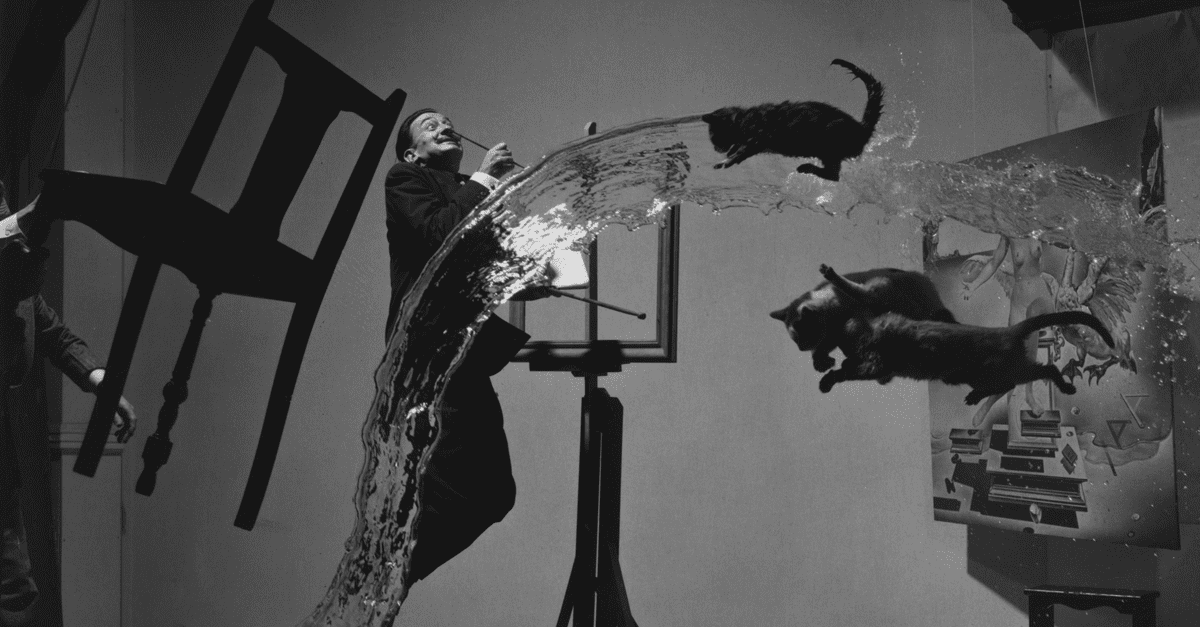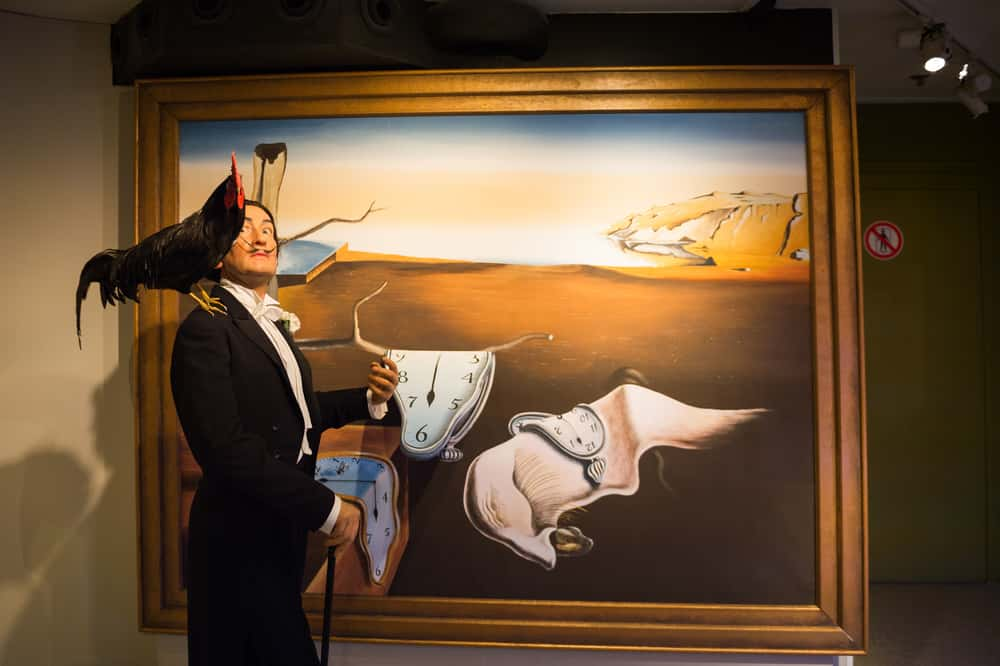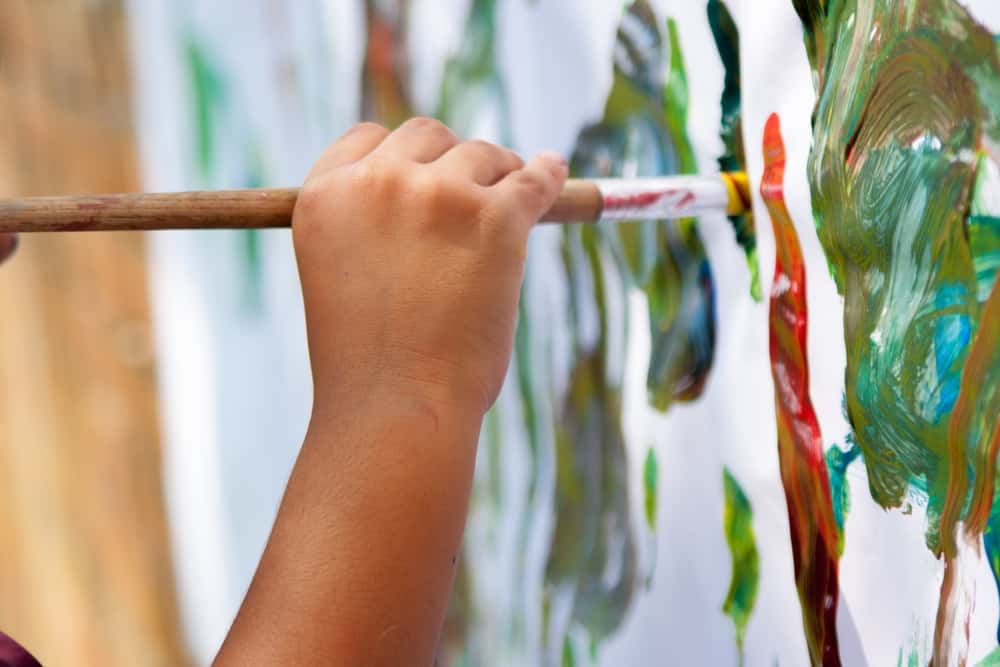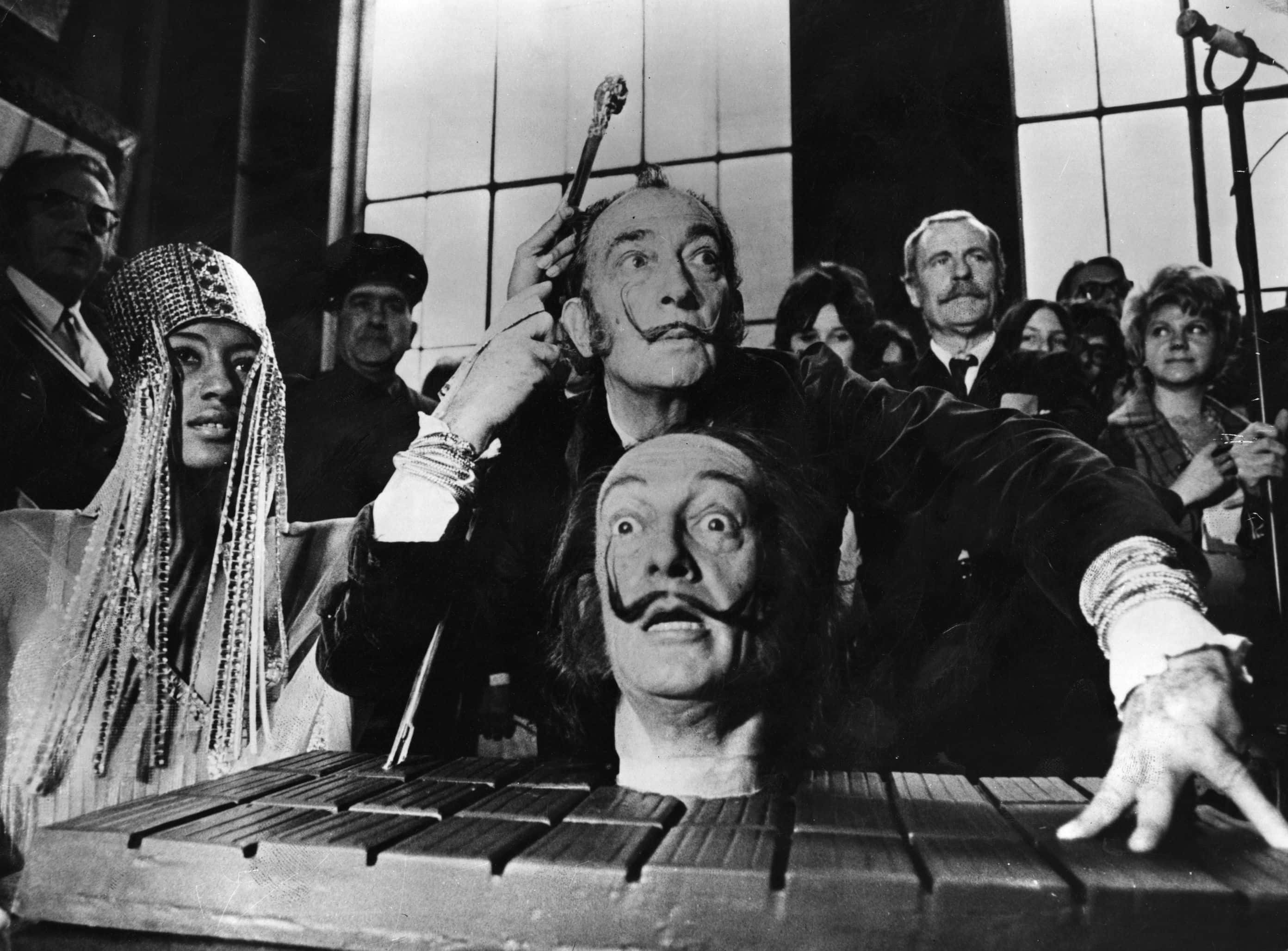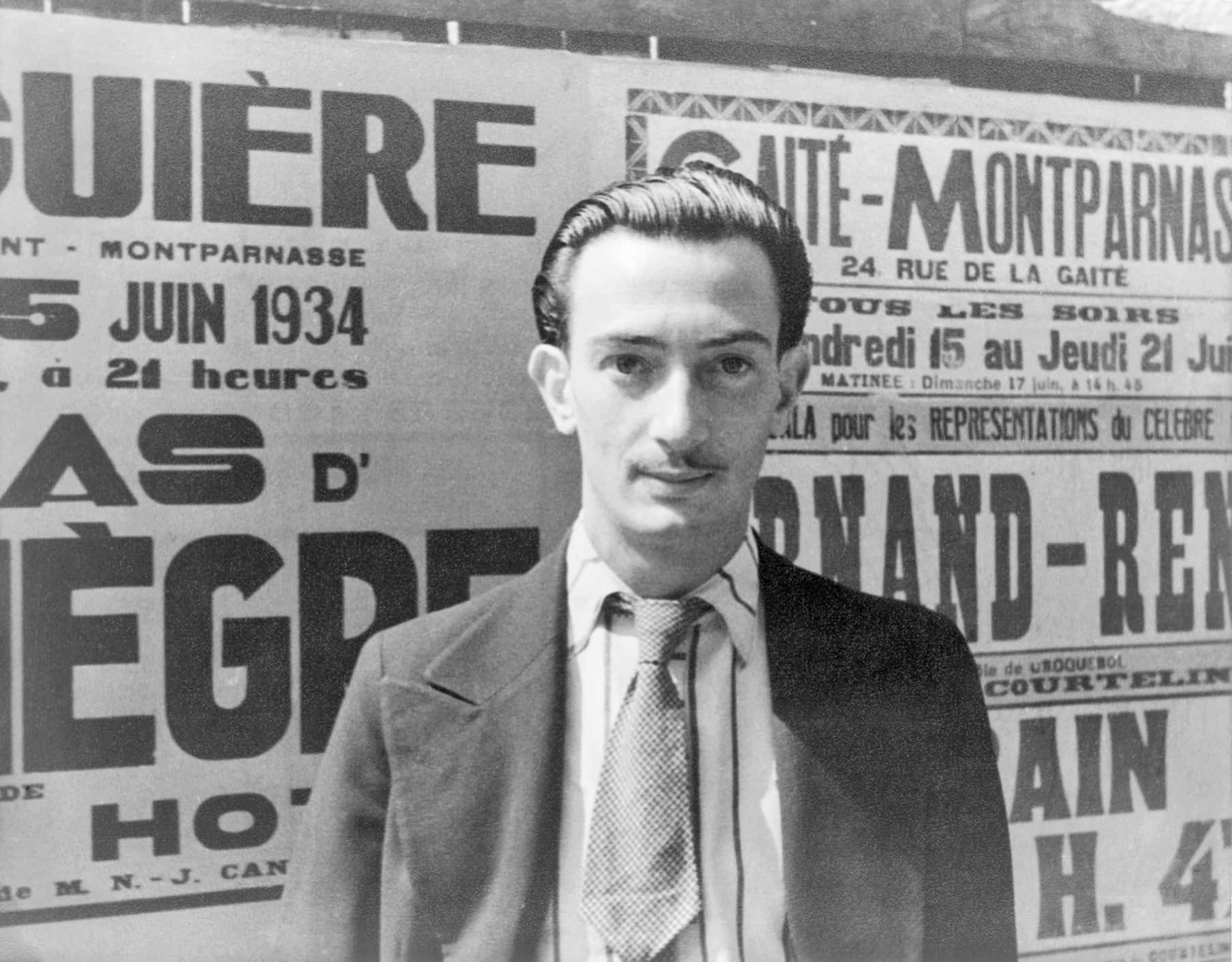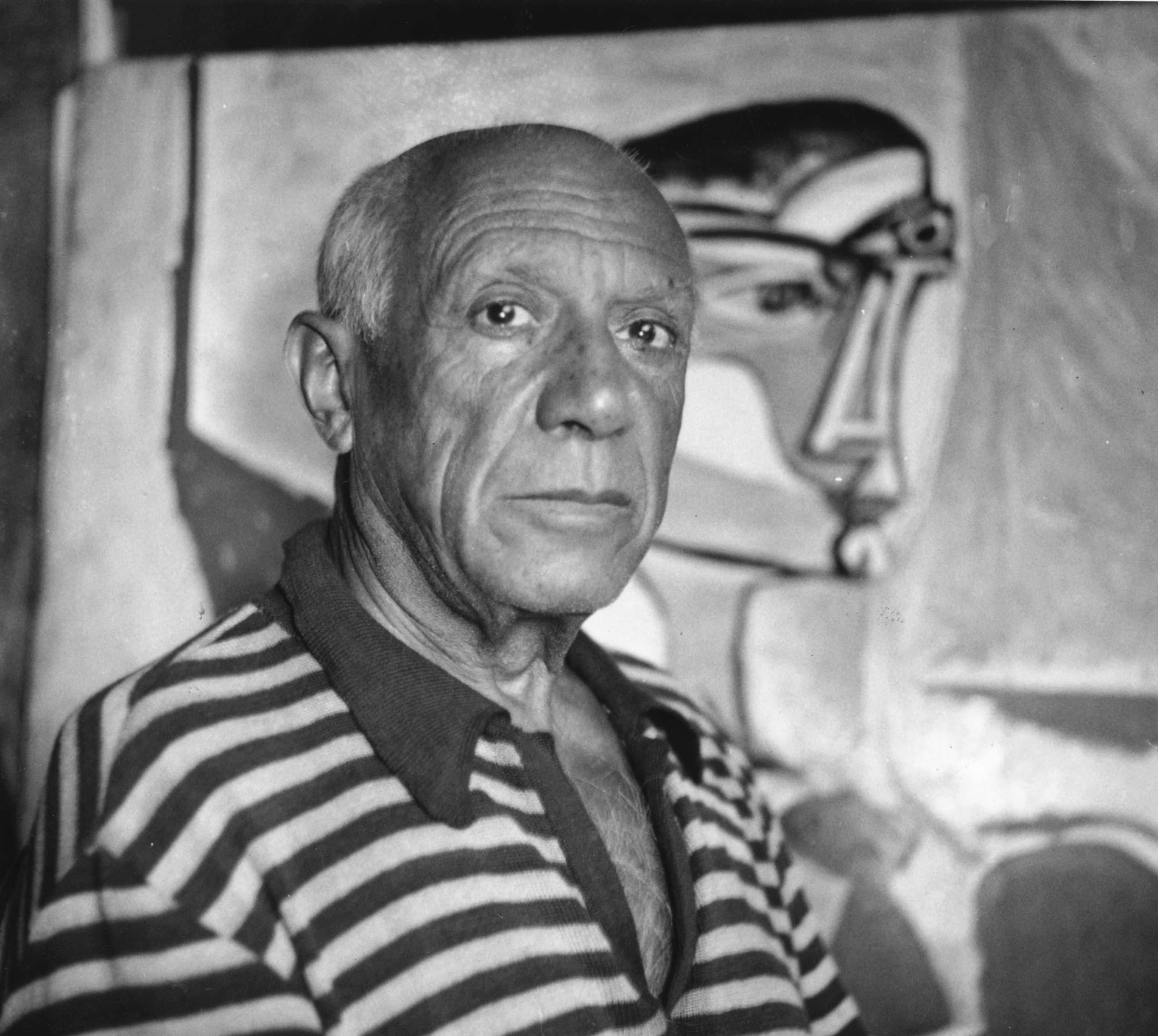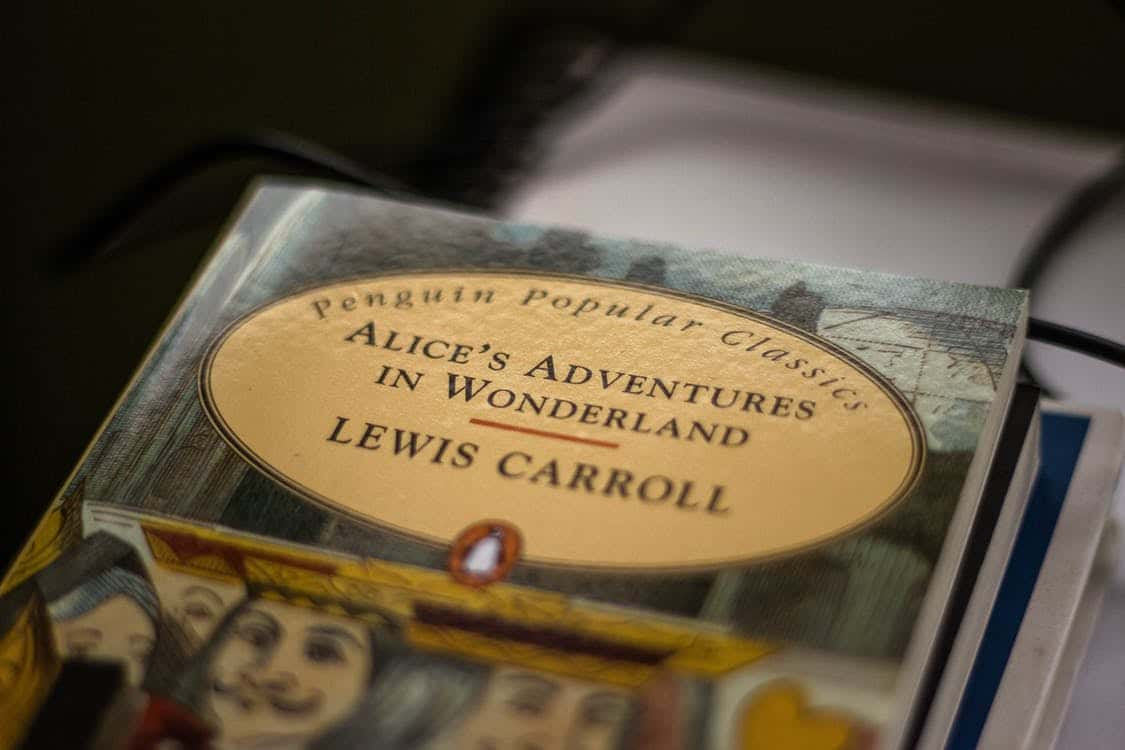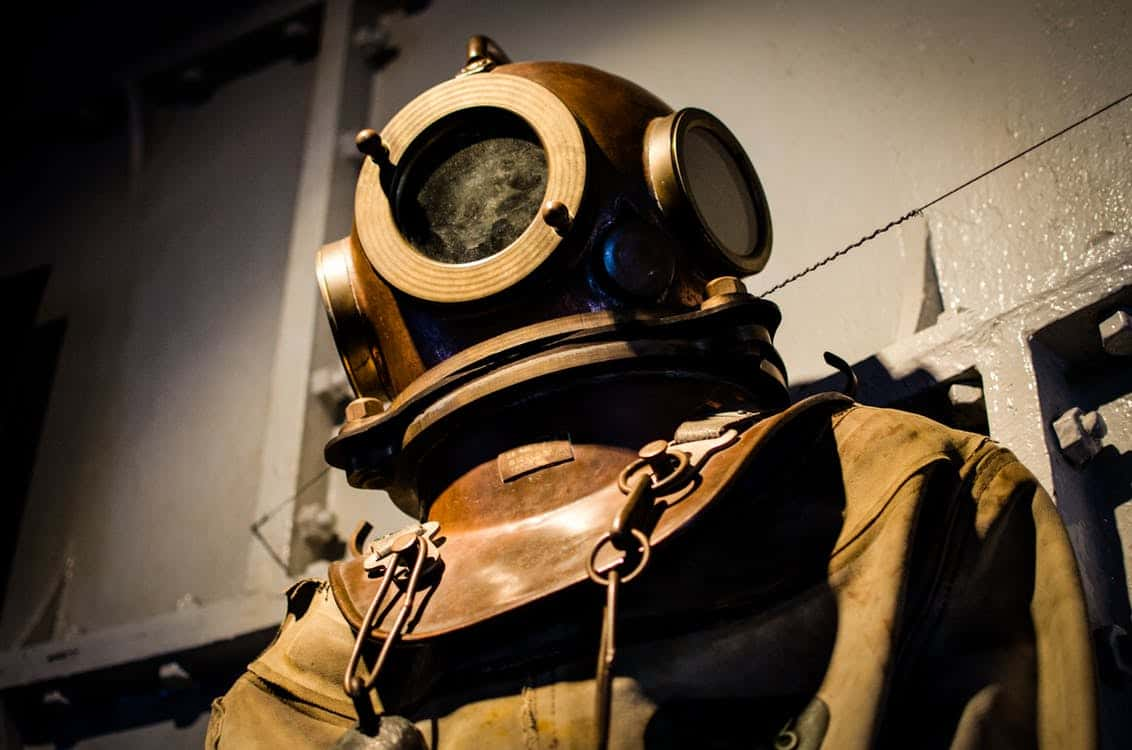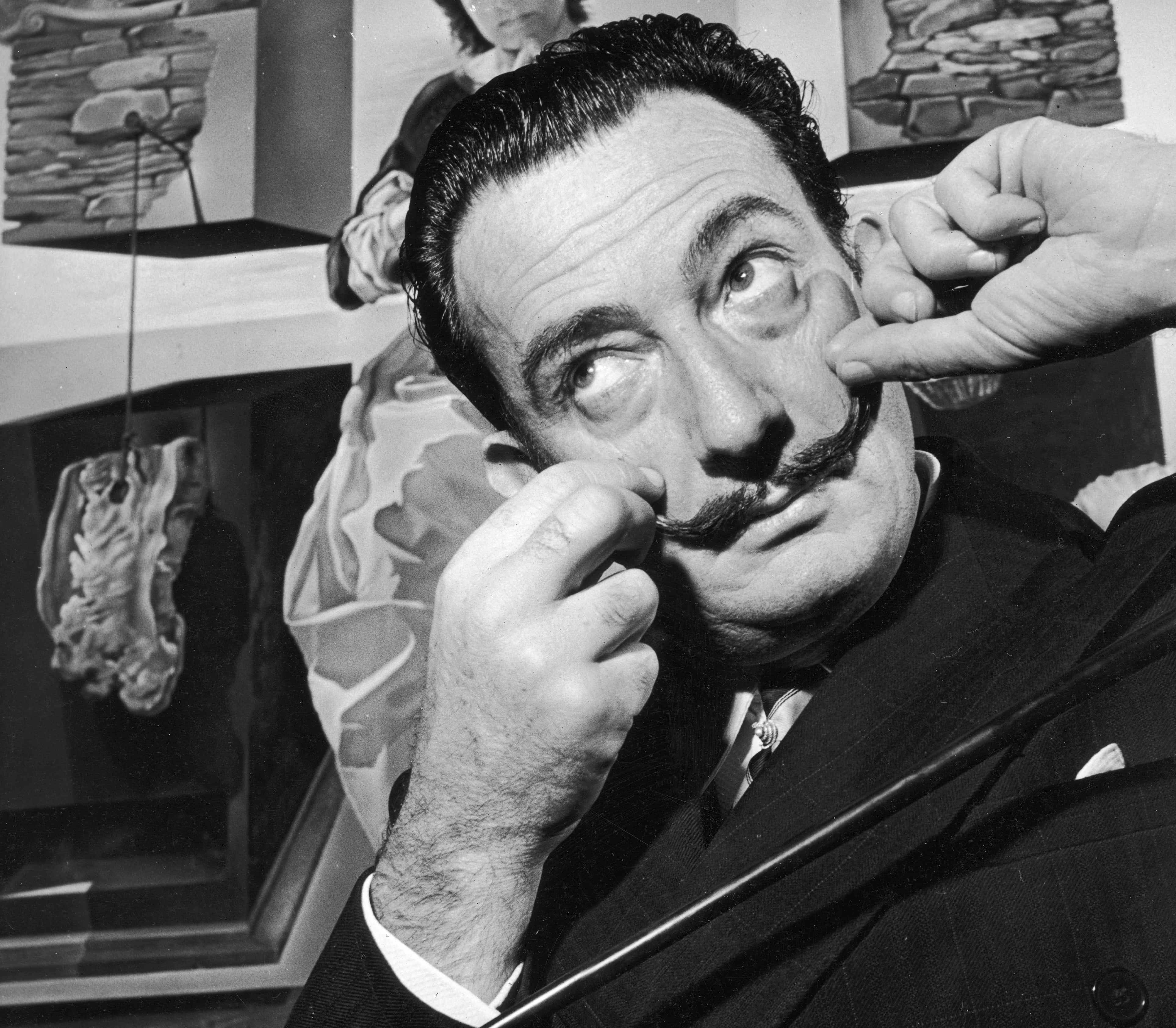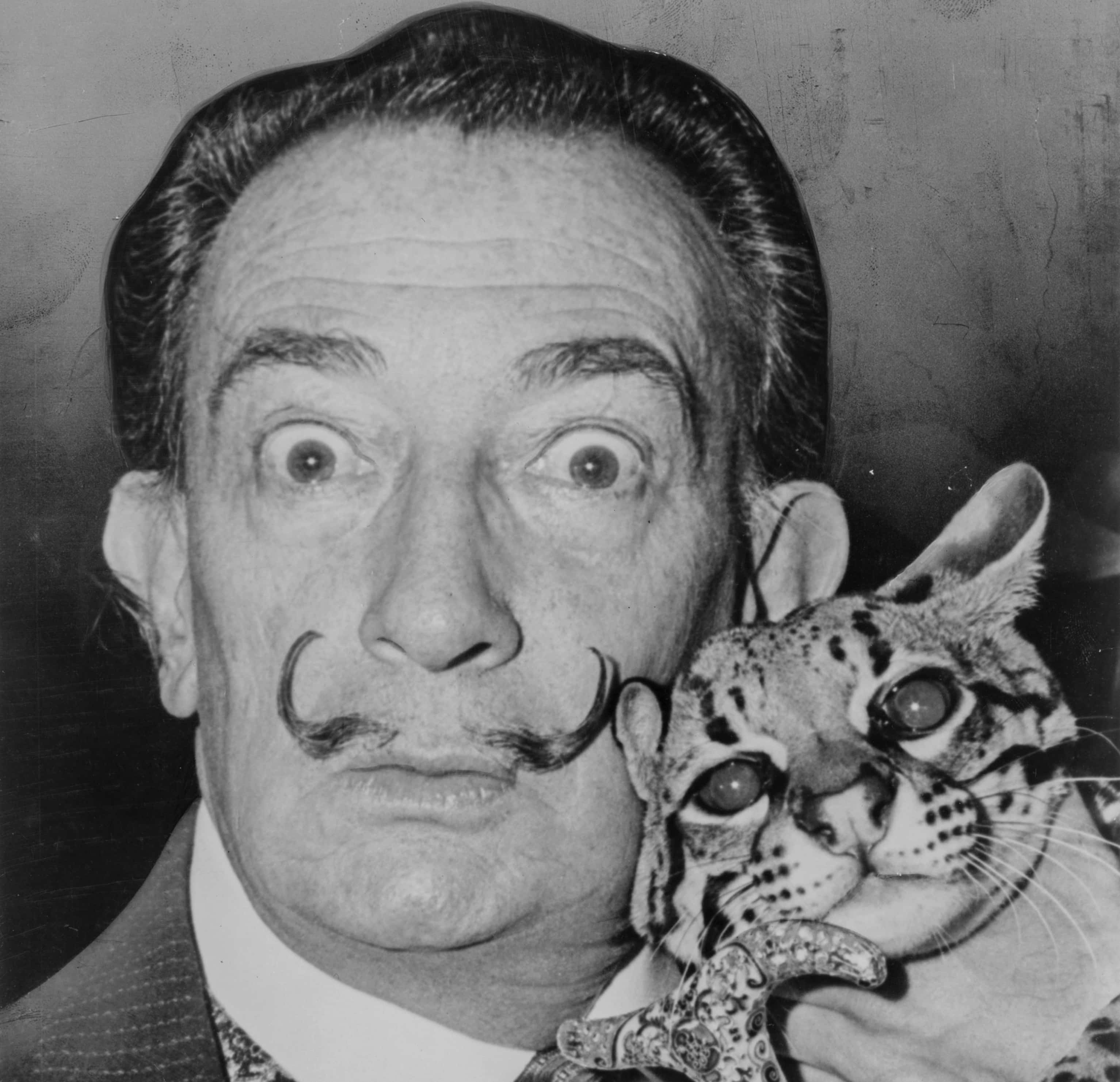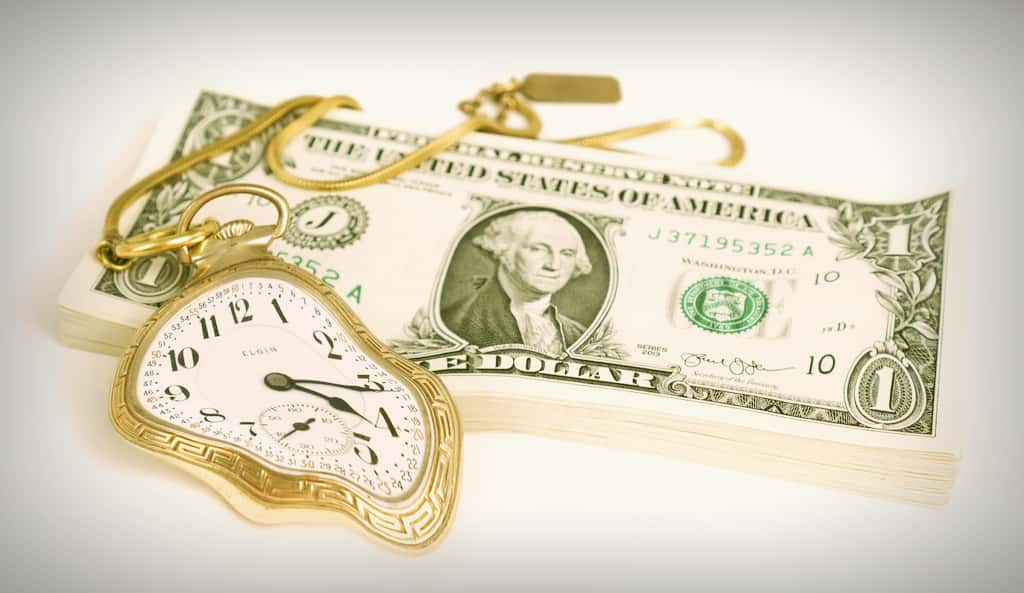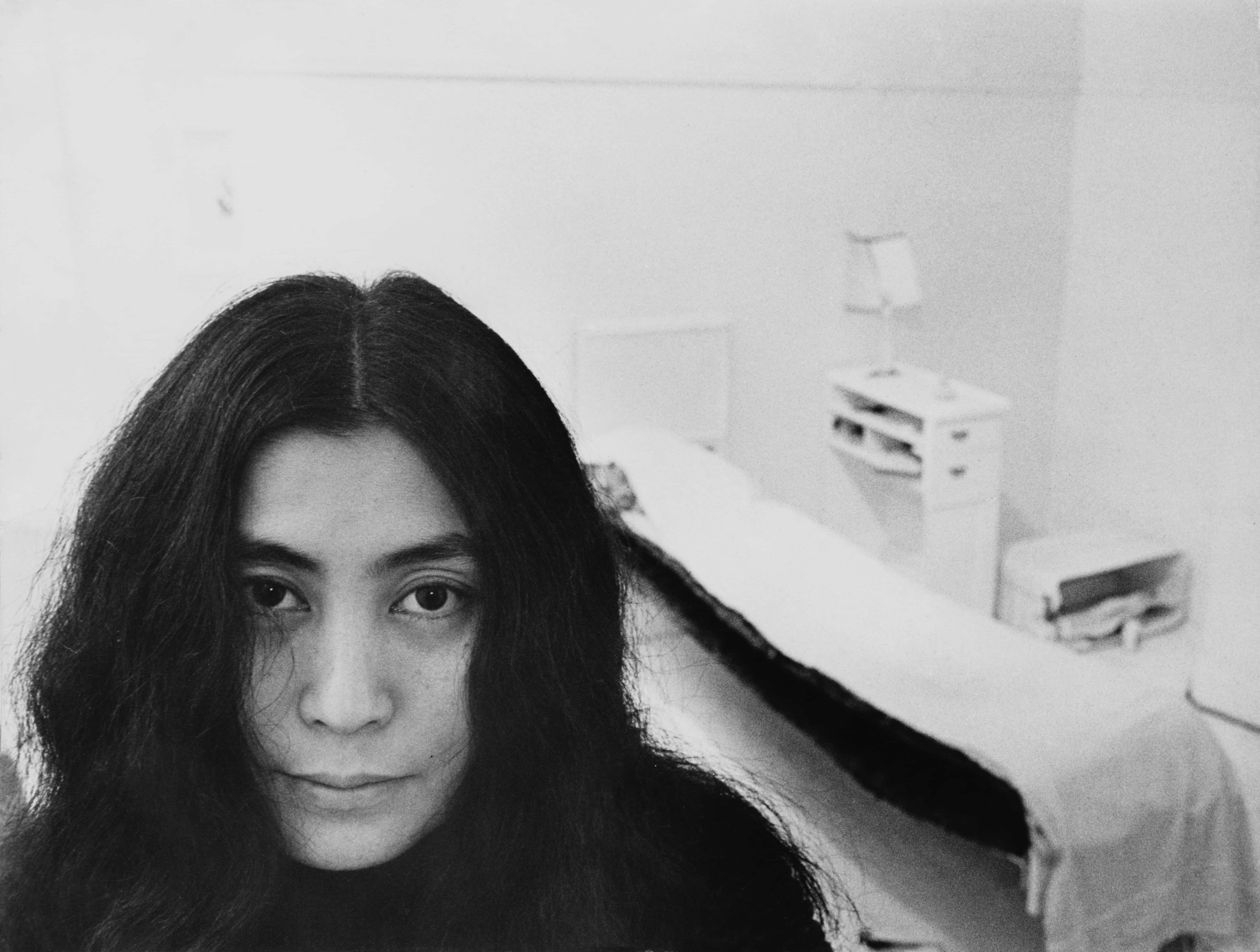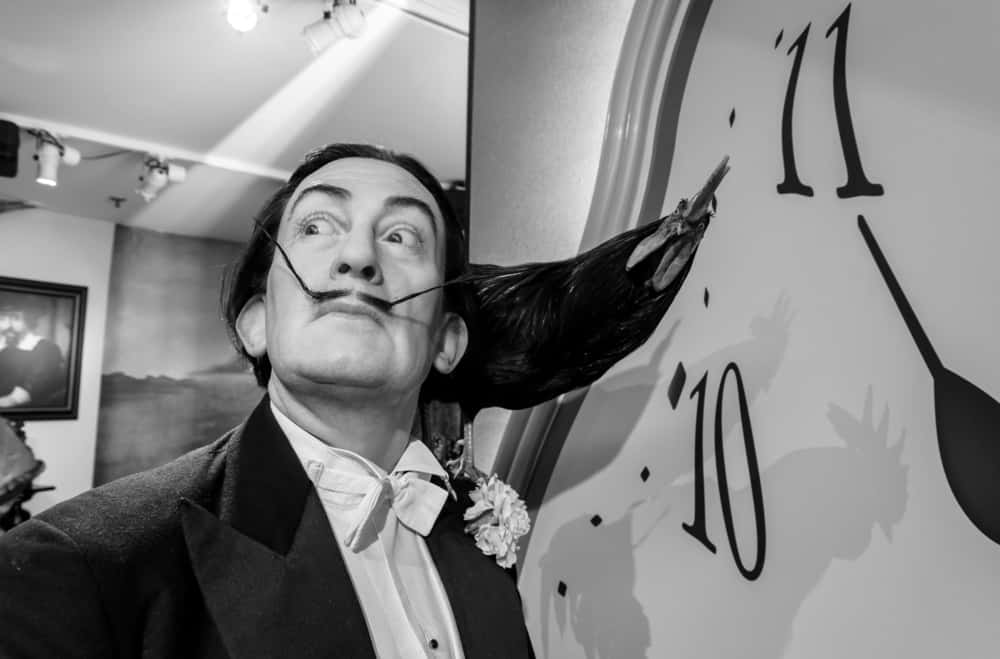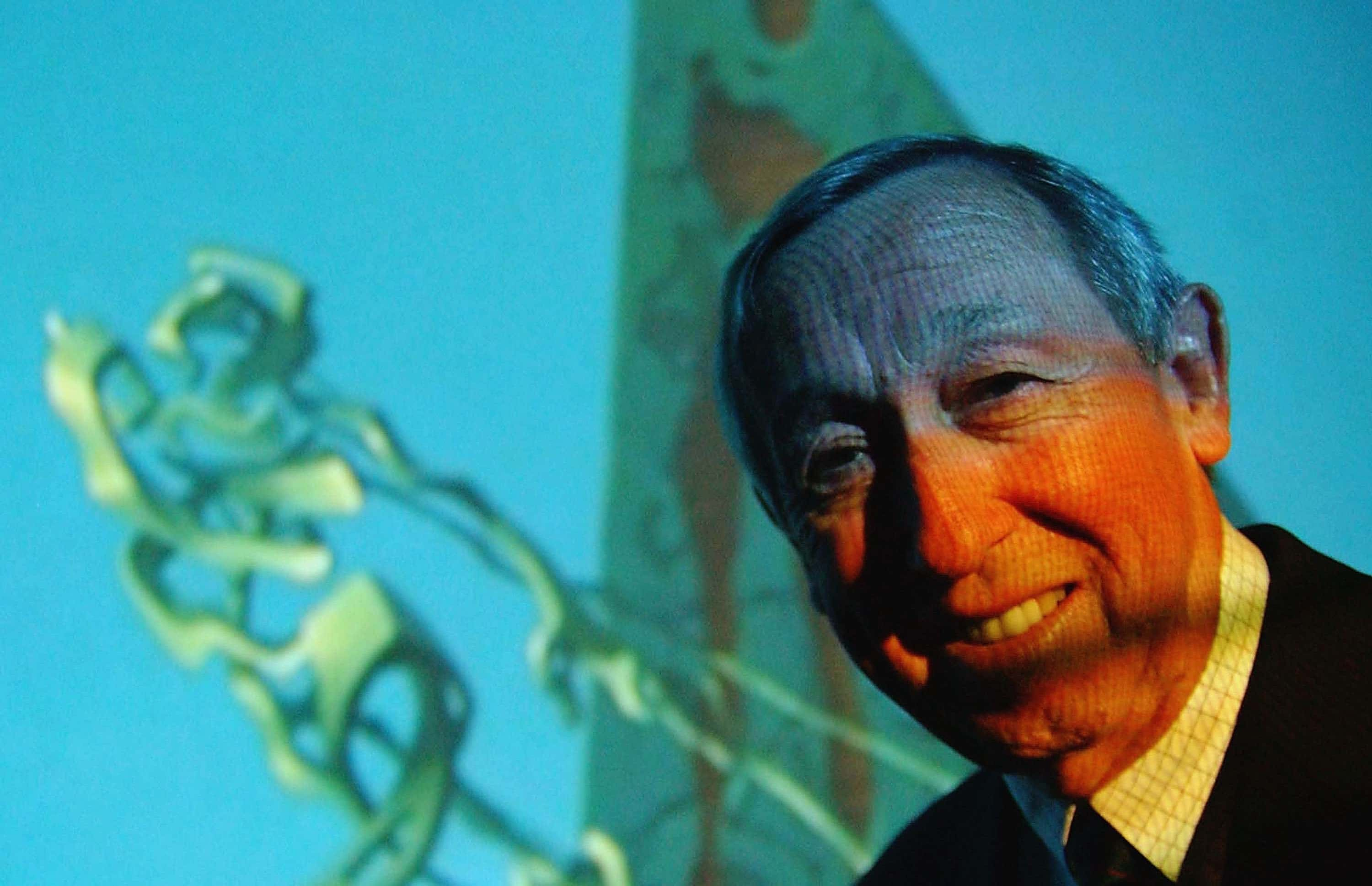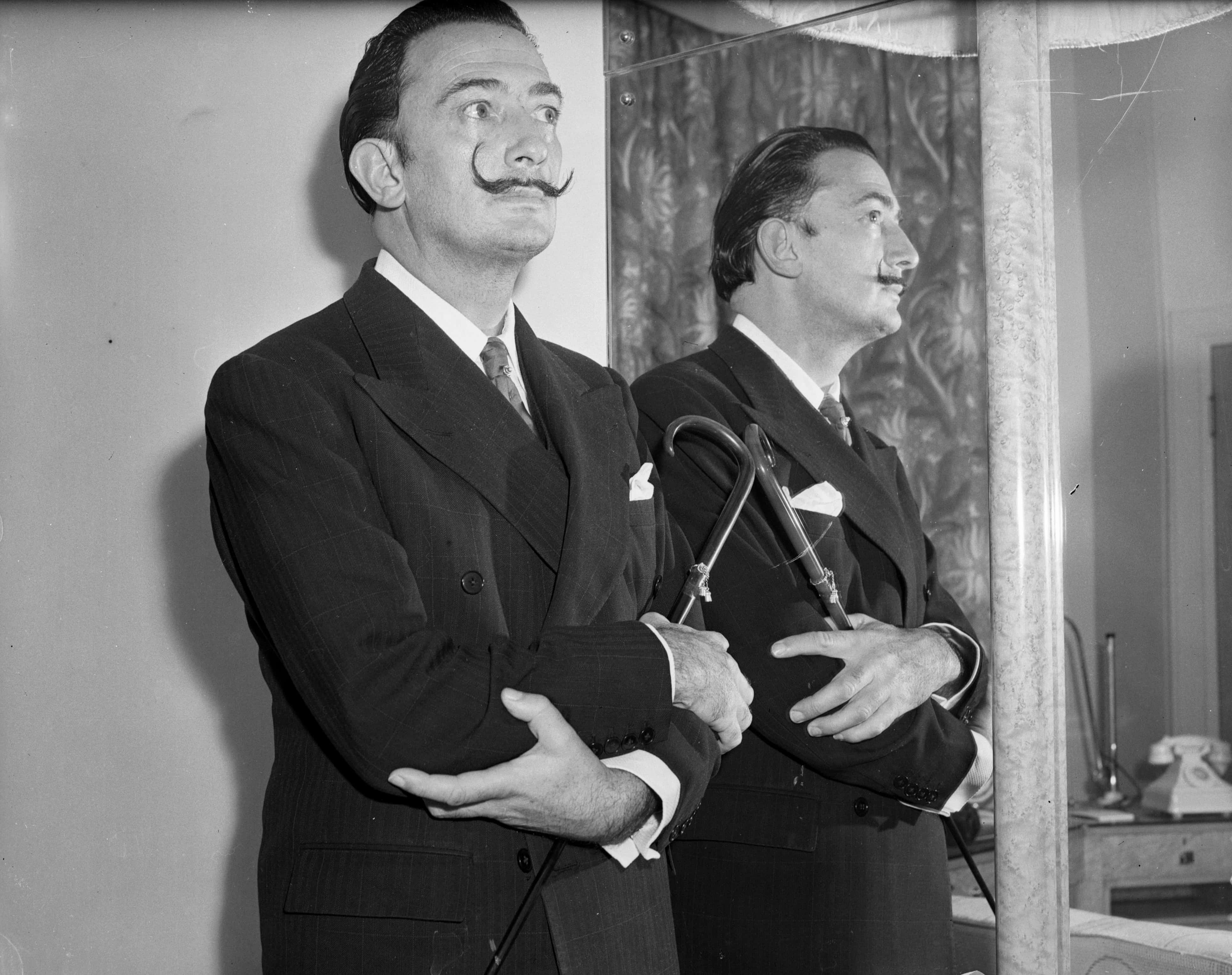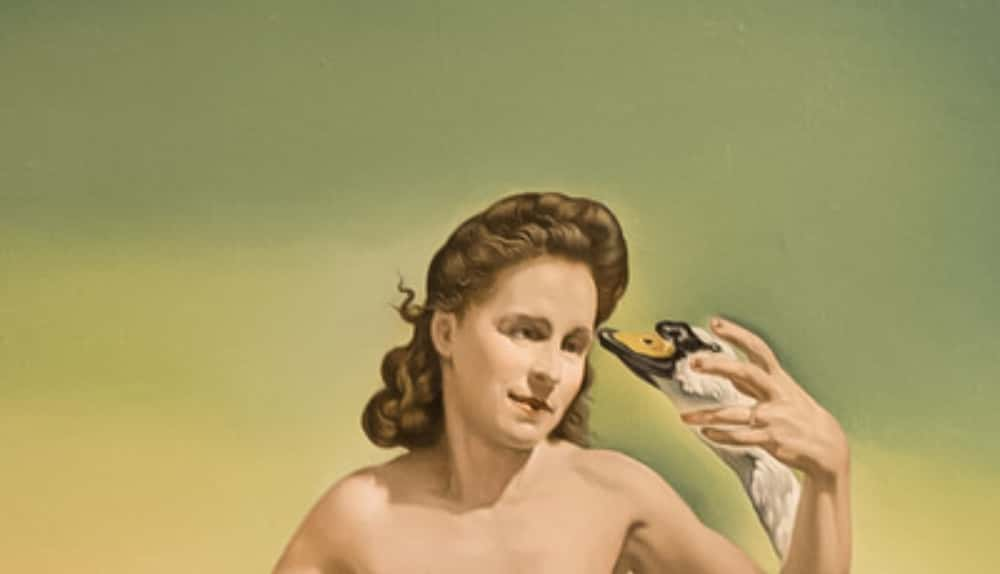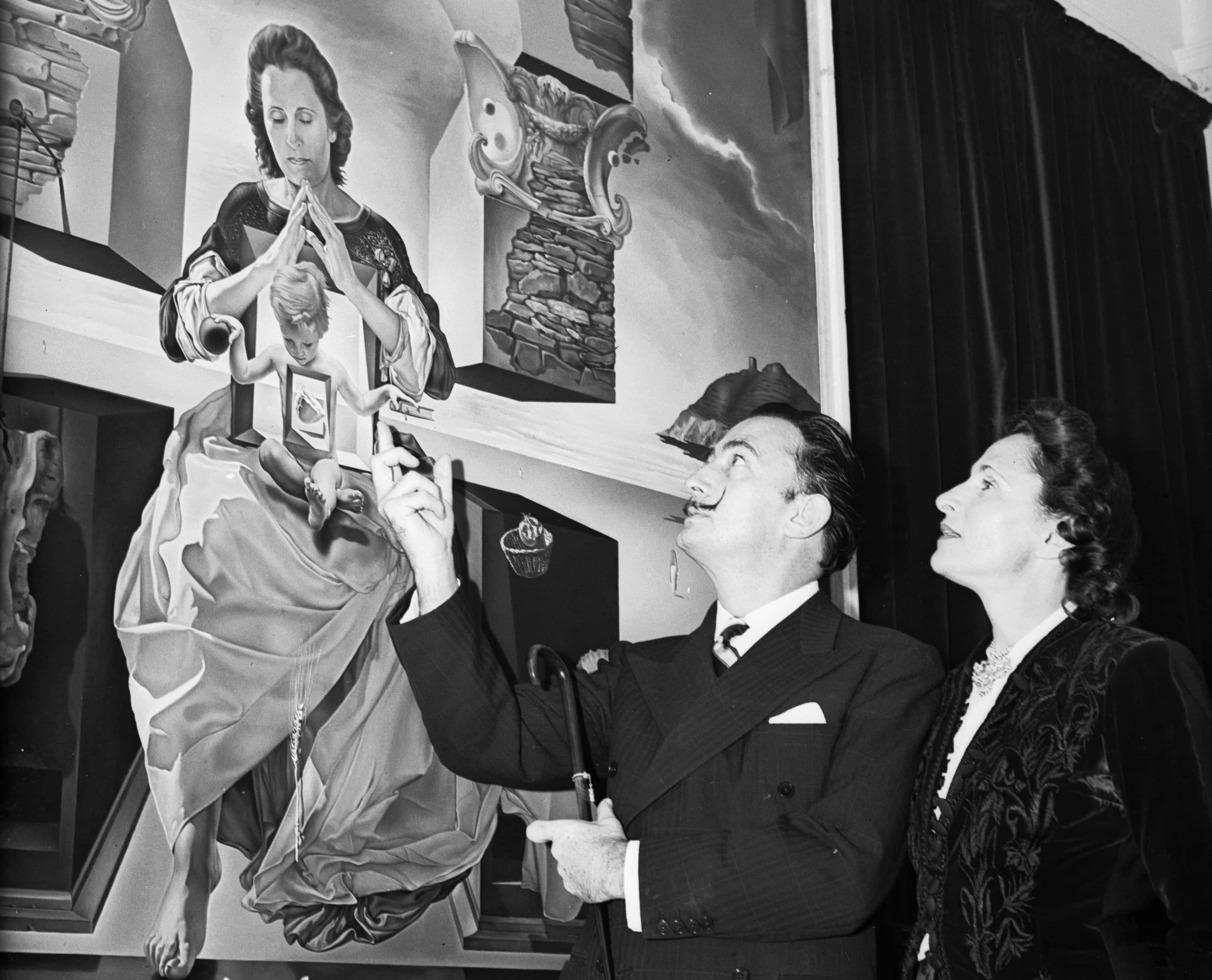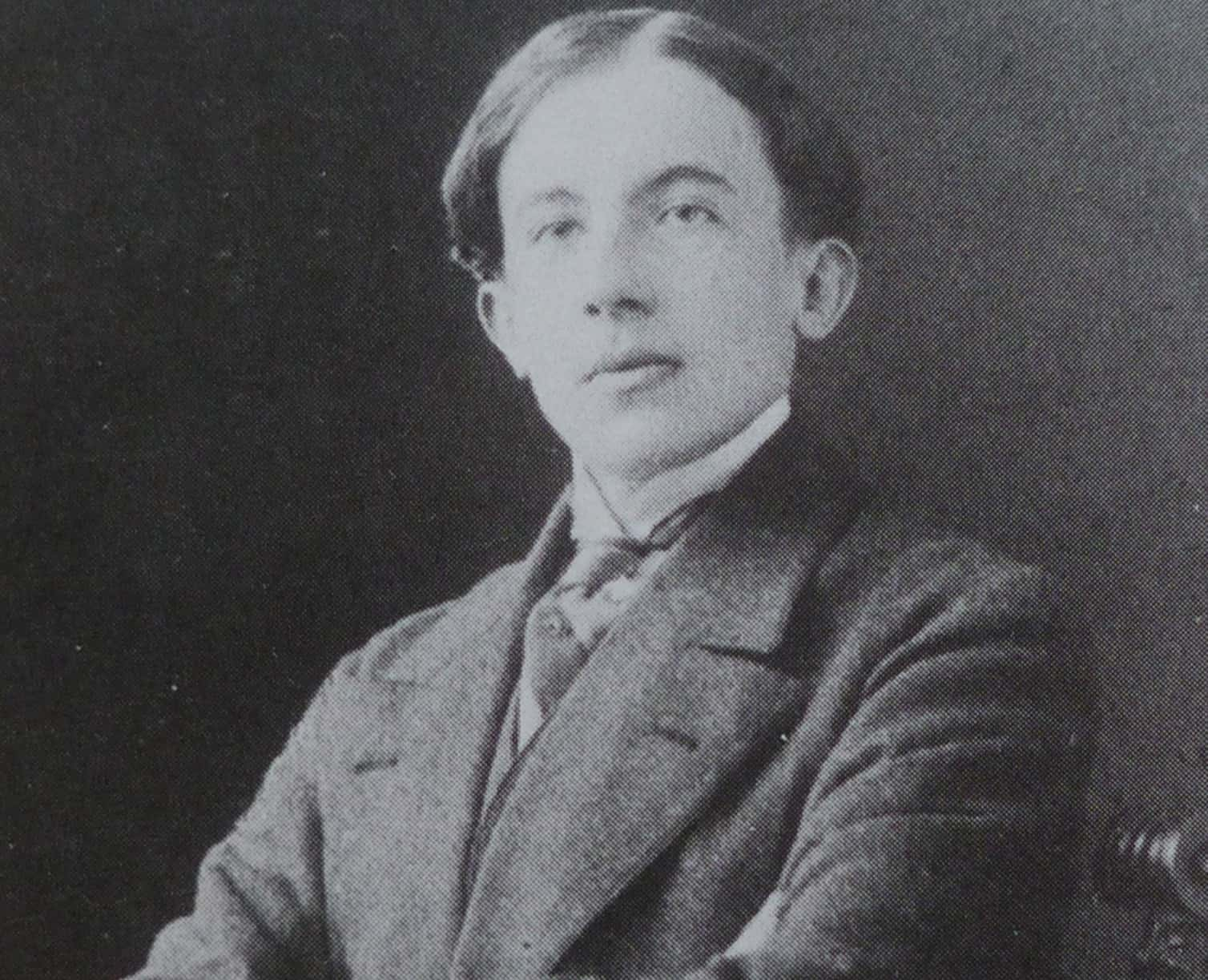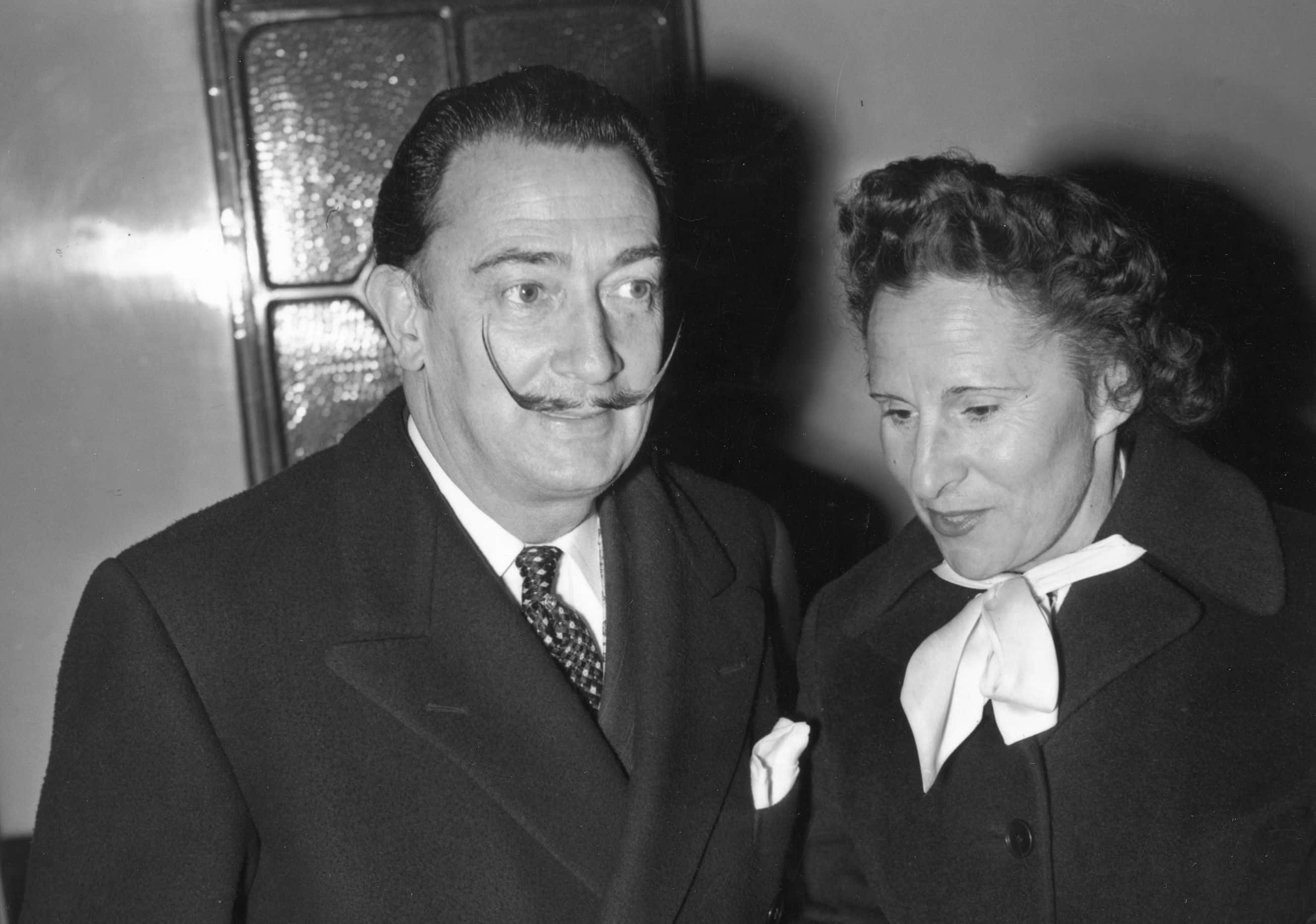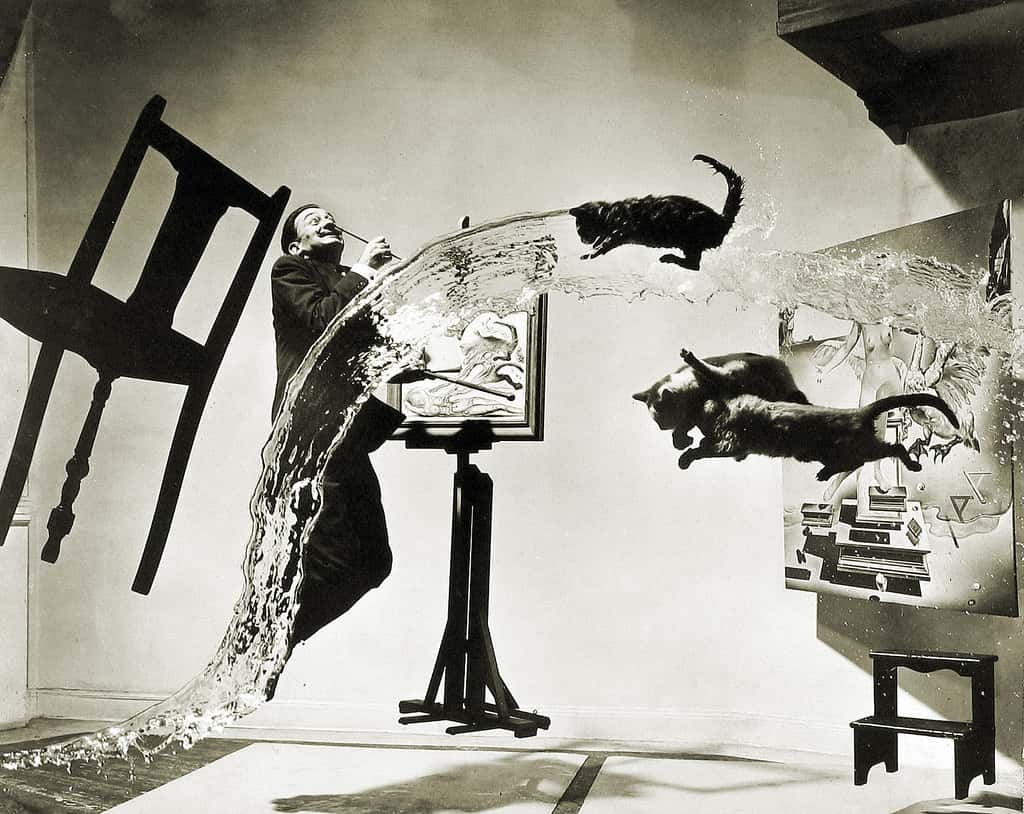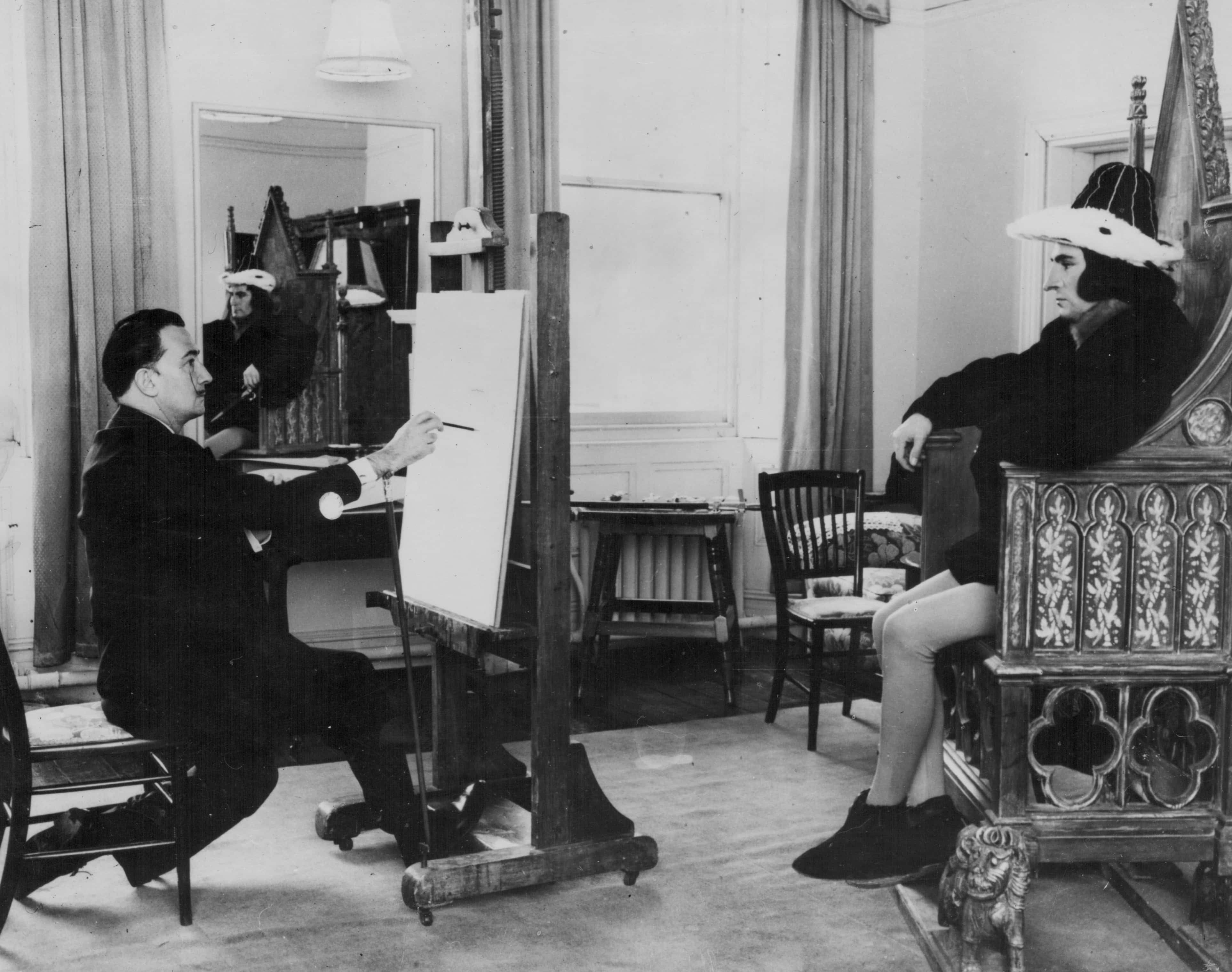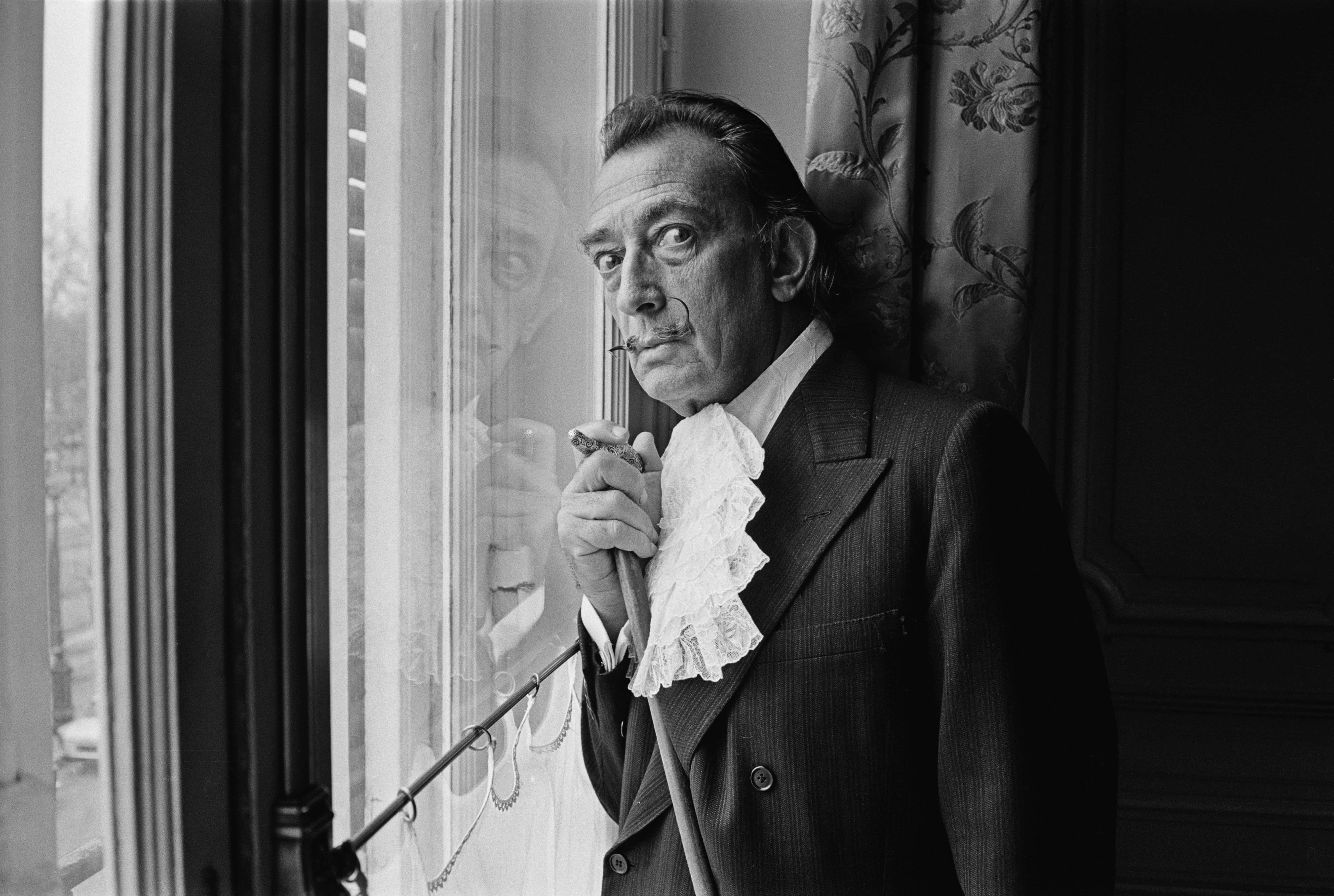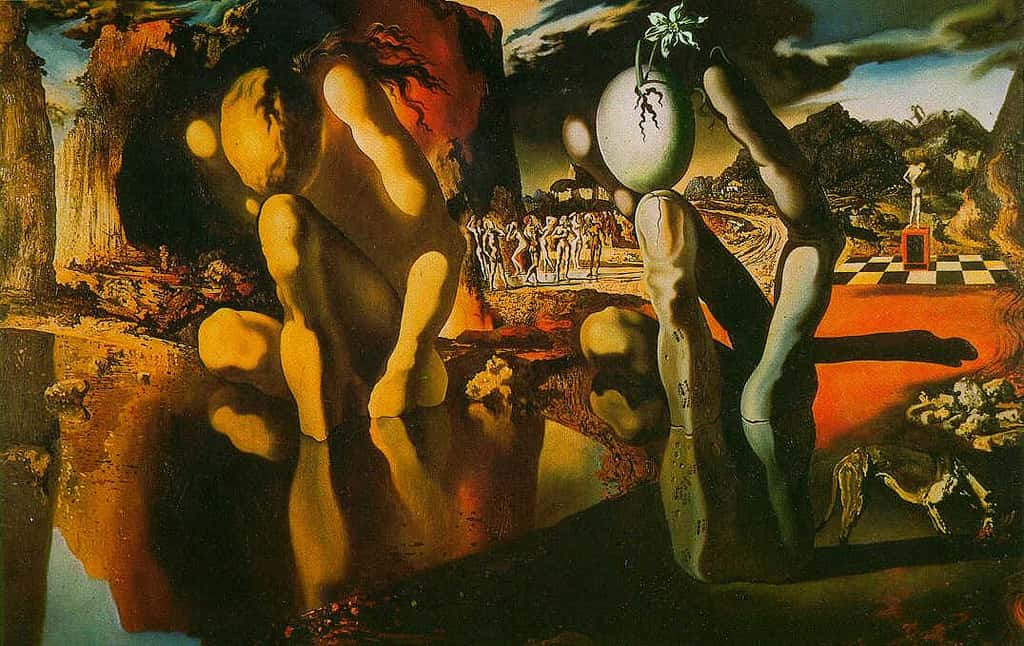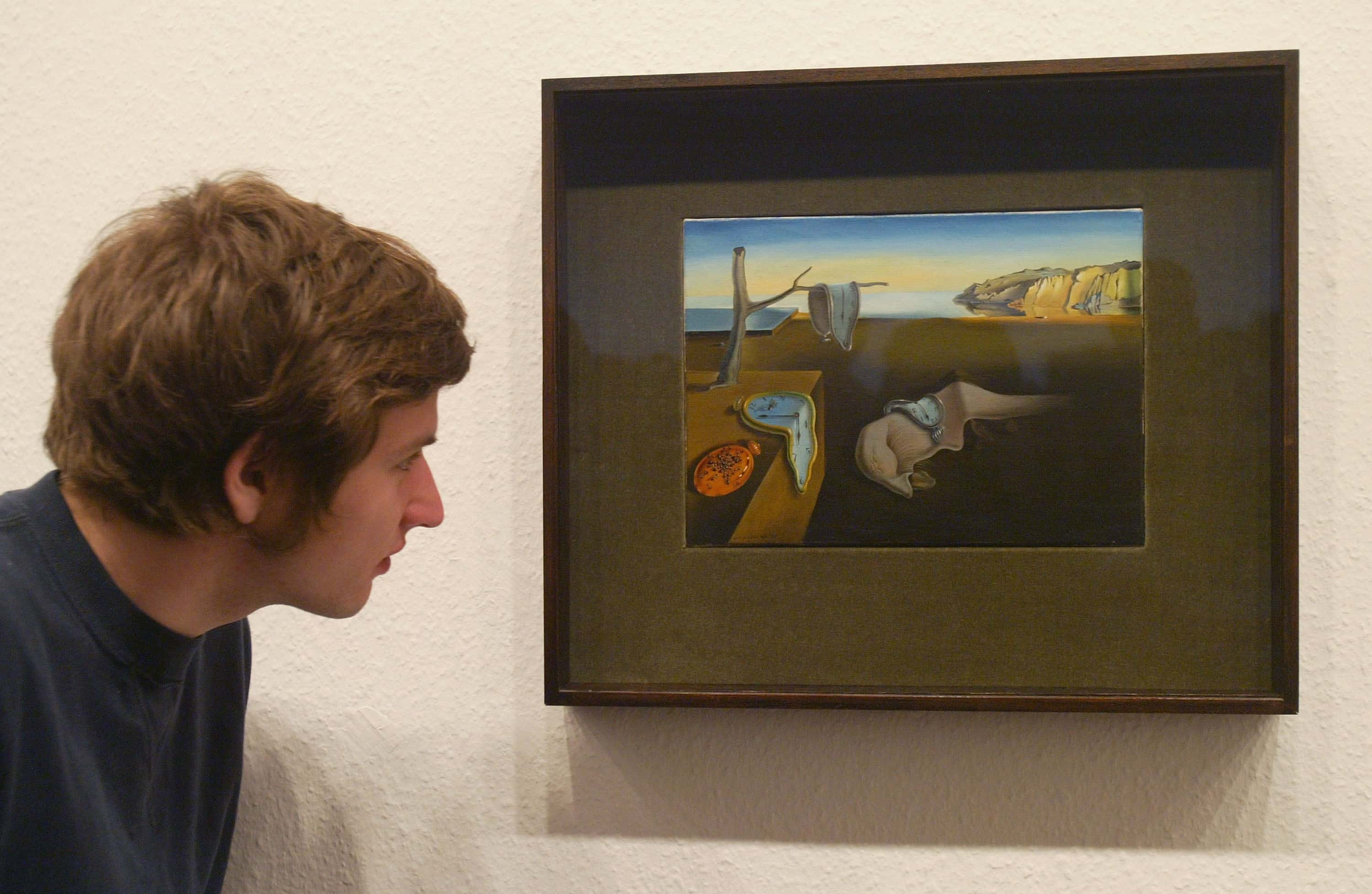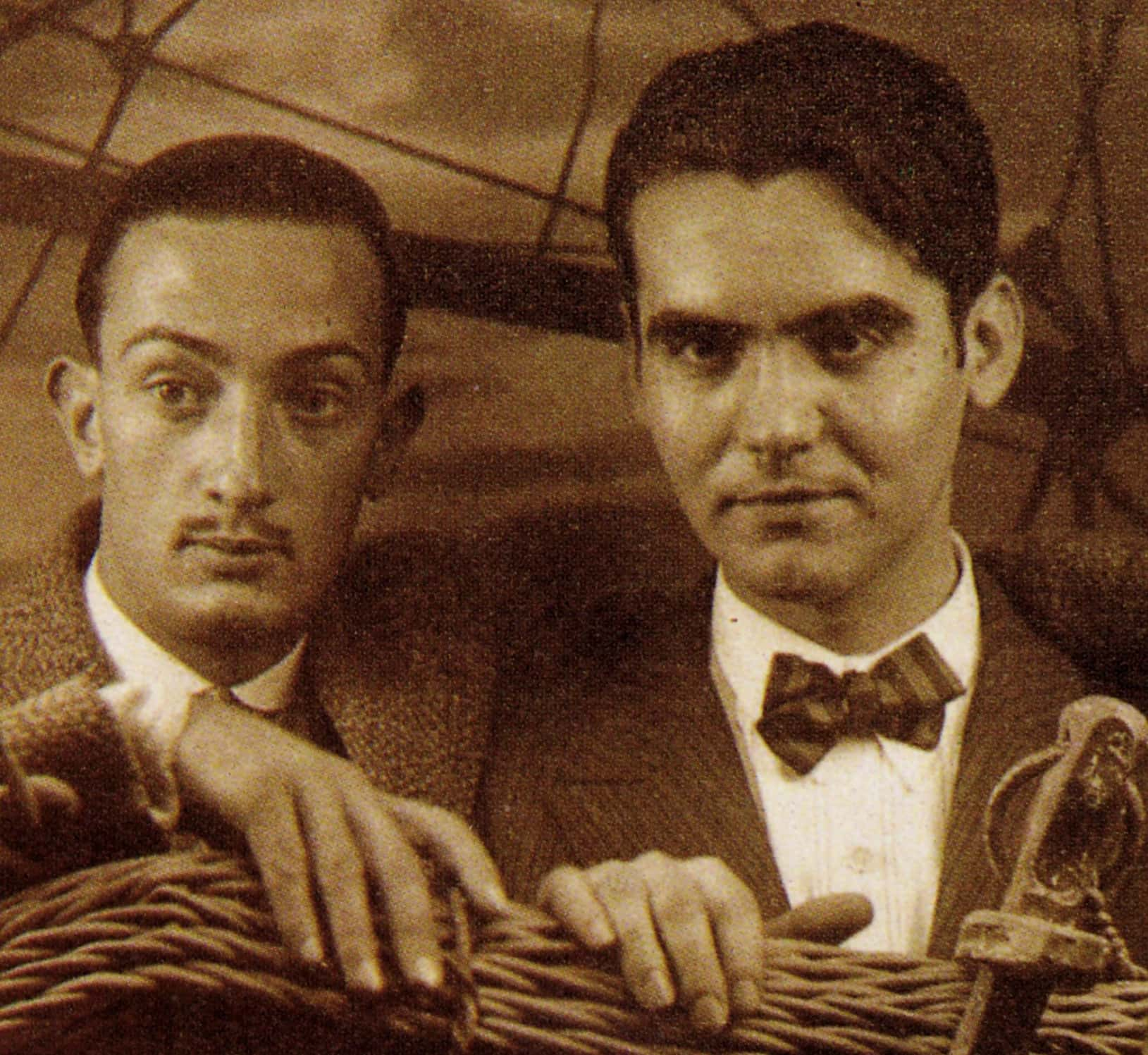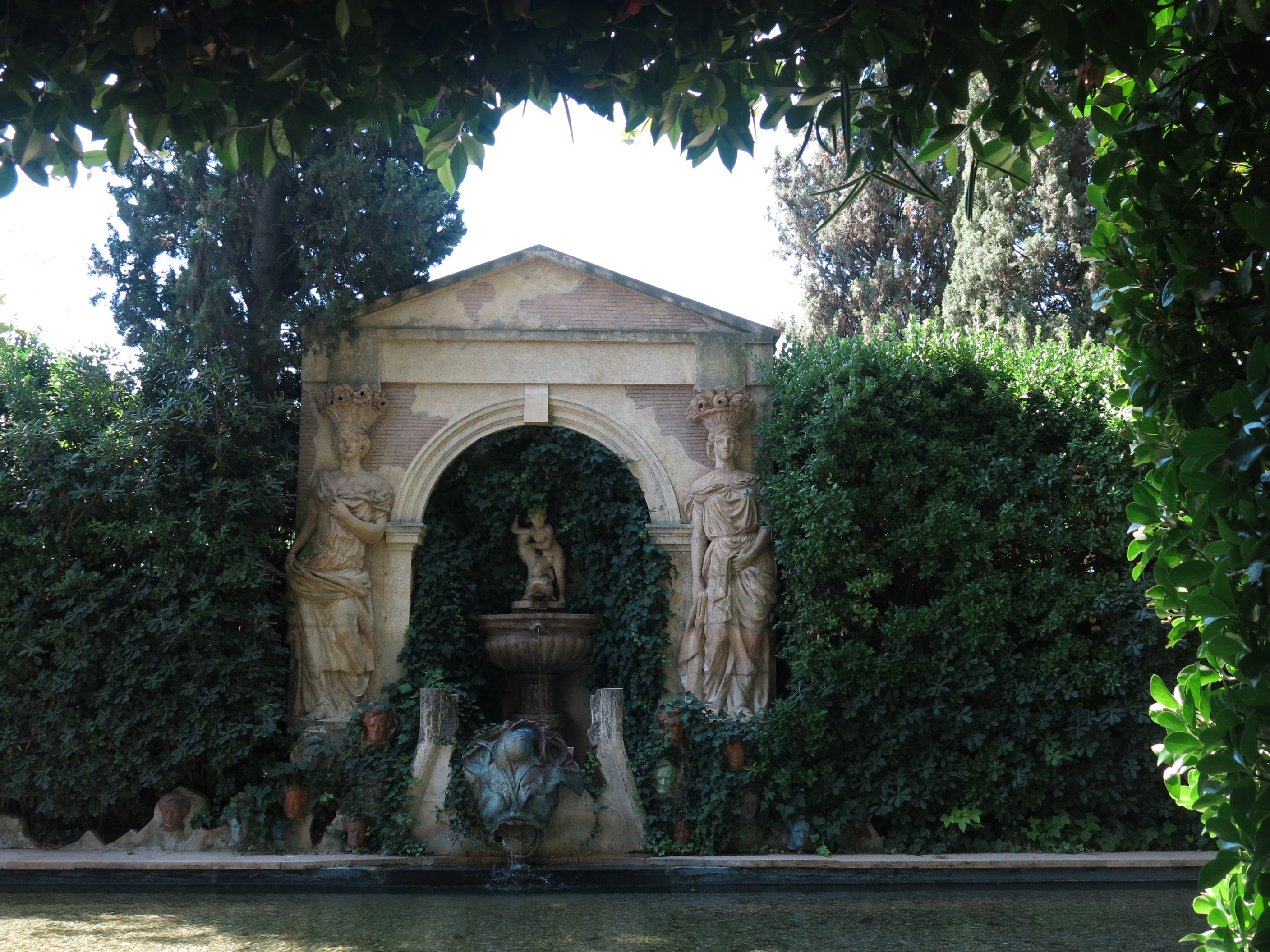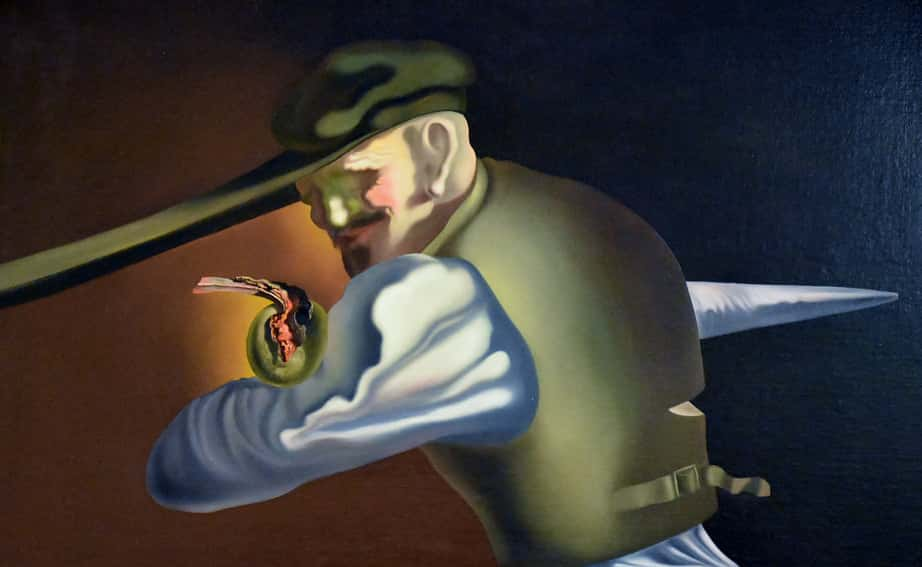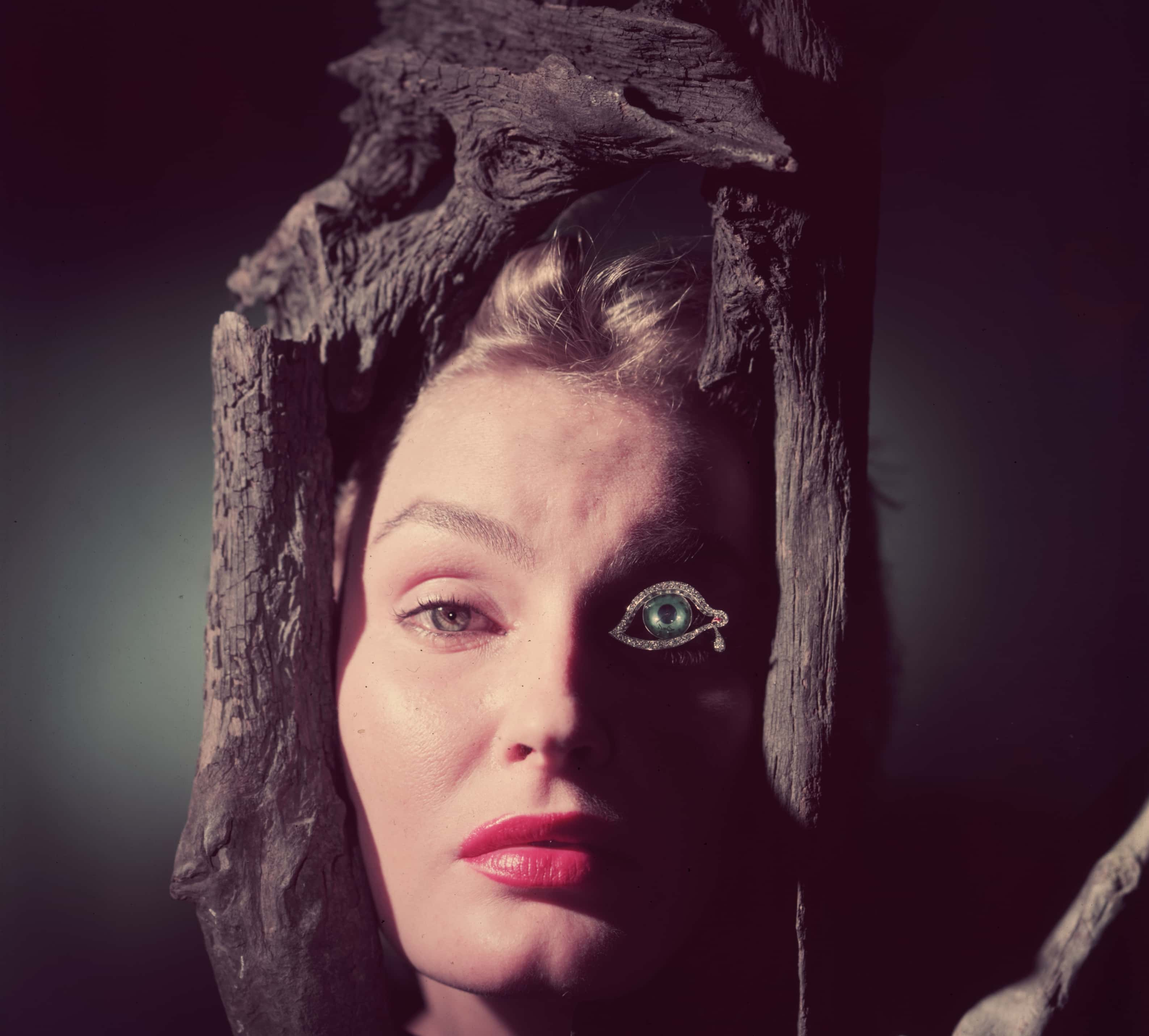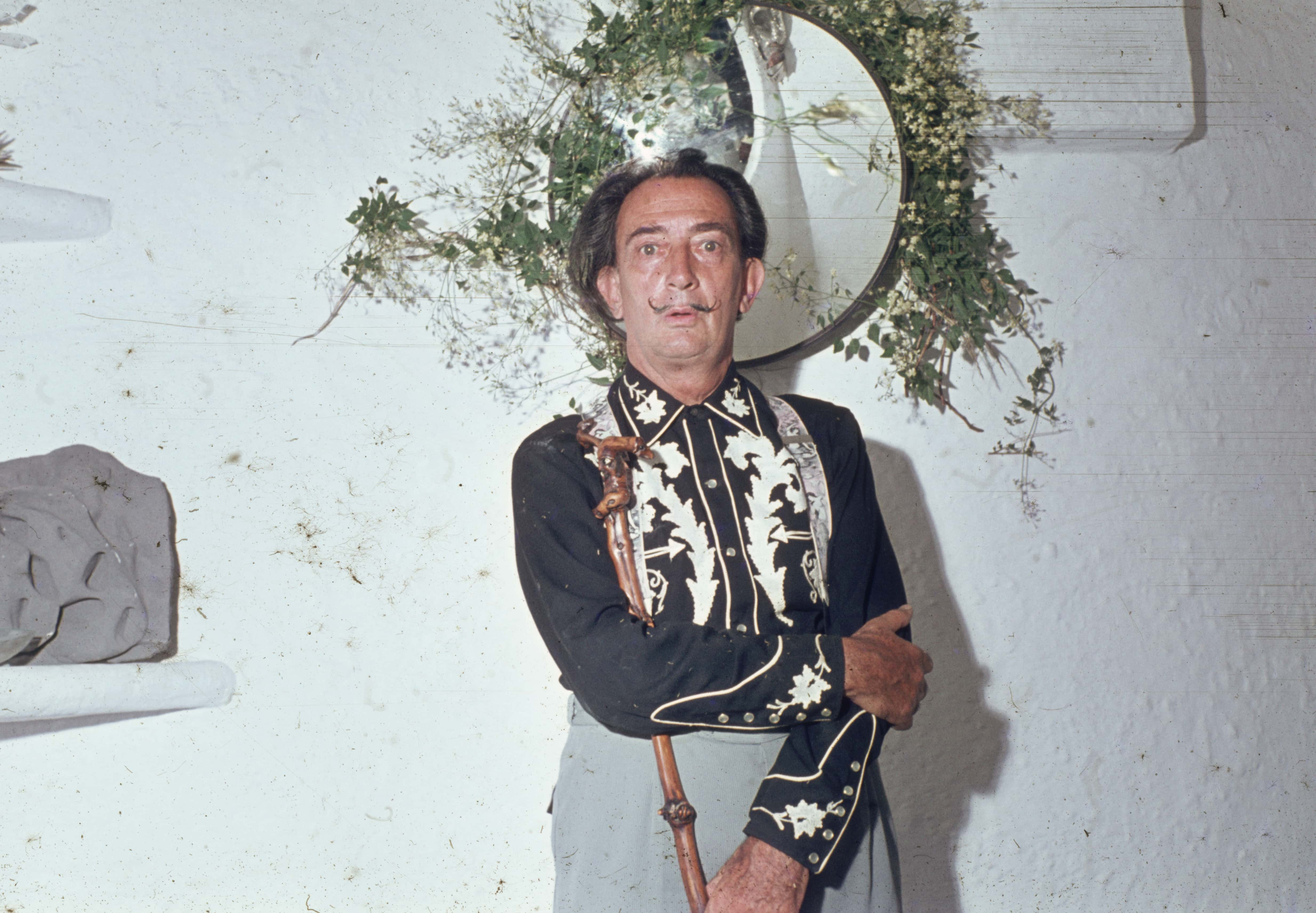"There is only one difference between a madman and me. The madman thinks he is sane. I know I am mad."—Salvador Dali
Salvador Dali was a surrealist painter known for exploring fantasy and the subconscious. His works are strange, thought-provoking, and iconic.
He died in 1989, but Dali's art continues to influence other artists and fascinate viewers all over the world. No other name is so closely tied to the bizarre and the absurd as Dali. So what made this one-of-a-kind artist tick? What made him so weird? Read on to discover 42 mad facts about the one and only Salvador Dali.
42. What's In A Name?
Salvador Domingo Felipe Jacinto Dalí i Domènech, AKA Salvador Dali, was born on May 11, 1904 in Figueres, Spain. He was the first Marquis of Dali de Púbol.
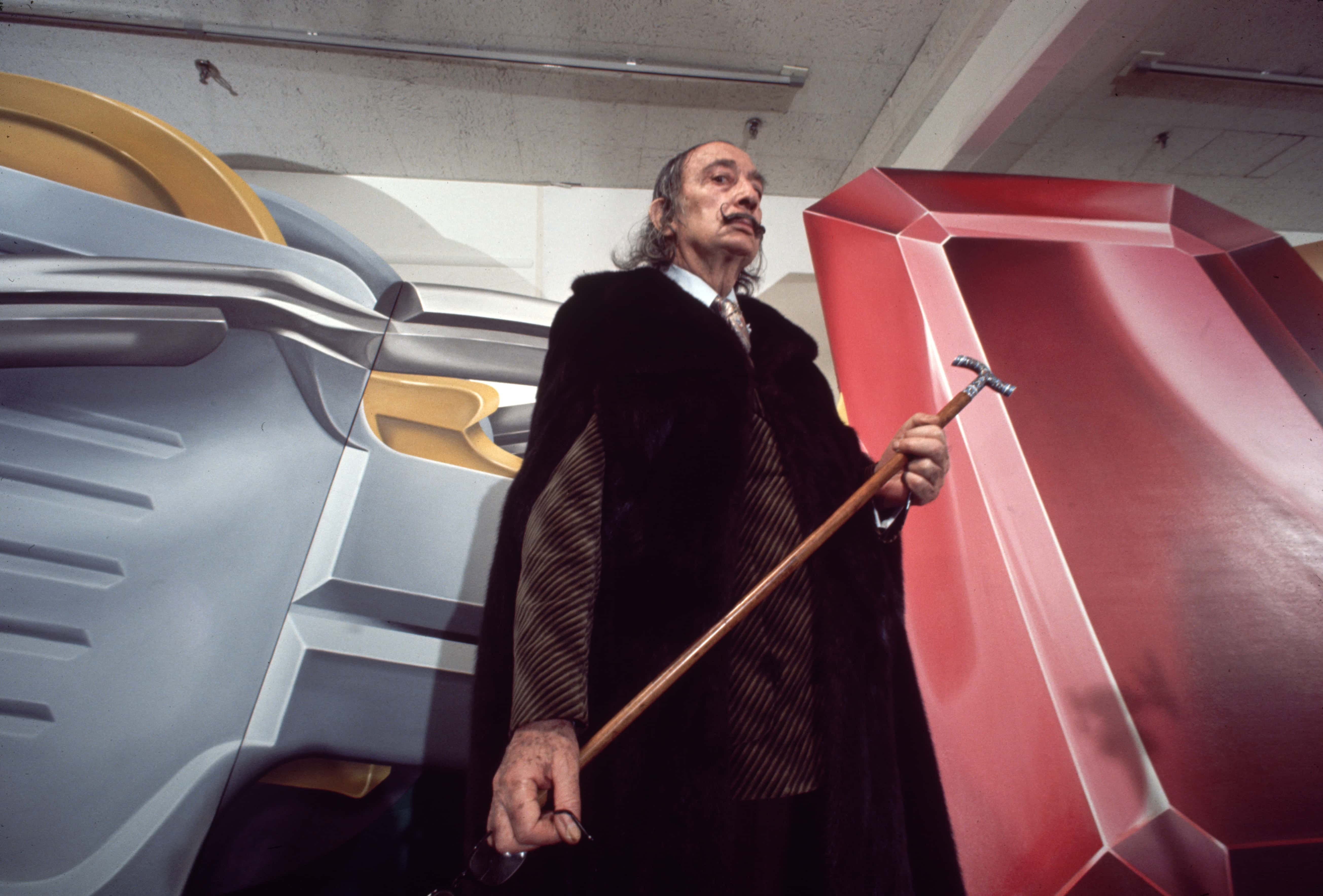 Getty Images
Getty Images
41. Delayed Pay-Off
While he was alive, Dali refused to pay his secretaries a salary, but gave them commissions on his works instead. The lack of a pay cheque didn’t do anything for them at the time, but they collected a fortune later on. It was lucky for them that his paintings were valuable or else they would never have seen a cent!
40. The Famous Dali
Dali’s famous painting The Persistence of Memory has seeped into multiple areas of pop culture. The melting clocks can be seen in an episode of The Simpsons, in news coverage of the NFL's Deflategate scandal in 2015, in episodes of Dr. Who... even in Sesame Street!
Is there anywhere it hasn’t been covered?
39. Child Phenom
One of Dali’s earliest paintings was called Landscape Near Figueras, and was painted when he was around six years old. The painting is part of what’s considered to be his "developmental period" and was painted with oils on a 5.5 x 3.5-inch postcard. The painting was pretty basic compared to his later works, but considering that most six-year-olds are still using finger paints, that’s a pretty impressive effort.
38. Tripping Like Salvador
While painting The Persistence of Memory, Dali used a technique which he called his "paranoiac-critical method." Dali would basically try to put himself into a state of psychosis and use his hallucinations to create “hand-painted dream photographs.” He also admitted to being frightened by what he saw on his canvas, which is totally understandable once you’ve seen them!
37. Strange Fascination
Dali was strangely fascinated by Hitler in bizarre ways. When asked about his obsession, he admitted to having “often dreamed about Hitler as other men dreamed about women." He admitted that seeing Hitler in his uniform turned him on.
36. Too Cool For School
Many of the world’s most brilliant minds were poor students, and Dali was no exception.
Two years after starting public school, his father had to transfer him to a French-speaking private school. At secondary school, Dali was remembered not for his grades or his record as a student, but for creating a spectacle when he threw himself down the stairs in front of students and teachers.
35. Those Who Can Teach
When Dali graduated from school, his father insisted that he attend the School of Fine Arts in Madrid to get his teacher’s qualifications. Dali apparently had other ideas, and managed to get himself expelled twice.
The first time was for his part in protests against painter Daniel Vázquez Díaz not being granted a position in the painting department. The second time came a year later when he refused to take the oral exam on the grounds that he was “infinitely more intelligent than these three professors.”
34. Spanish Idol
Pablo Picasso was one of Salvador Dali’s idols, and in 1926, he traveled to Paris to meet the legendary painter. He told Picasso that he came to see him before he even visited the Louvre, and in 1934, Picasso repaid the favor by paying for Dali to come to New York for his first American exhibition.

History's most fascinating stories and darkest secrets, delivered to your inbox daily.
33. Down the Rabbit Hole
It seems perfectly fitting that Dali would decide to illustrate Lewis Carrol’s surreal novel Alice’s Adventures in Wonderland. He illustrated the cover and a single illustration for each chapter, and not surprisingly, the Mad Tea Party scene includes a picture of Dali’s melted clock. The figure of Alice can be found in every image, and the sketches are every bit as trippy as you’d imagine.
32. Show Me The Money
Dali wasn't afraid of a little selling out. He designed lots of logos and advertisements over the course of his career, including the logo for Chupa Chups (the popular Spanish brand of lollipops).
31. Dying for His Ego
At the London Surrealist Exhibition in 1936, Dali showed up to deliver a lecture wearing an old-timey deep-sea diving suit to illustrate his subconscious existence. This might have seemed like a really interesting way to make a point, but the suit wasn’t really meant to be worn outside of the water and it got pretty stuffy in there. The entire time he was up there, Dali was actually suffocating inside the suit, but the audience didn’t realize it until he came close to fainting. Luckily, poet David Gascoyne came to the rescue with a wrench to get the bowl off his head.
30. Signature Look
In addition to being famous for his paintings, Dali was also known for his facial hair. His curled mustache (which Dali took from the painter Diego Velazquez) is as influential as his work, and the World Beard Championships have an entire category dedicated to his look.
29. Salvador And The Cat
Dali always loved wild things.
At one time in his life, he had a pet ocelot named Babou, which he took with him everywhere... even to restaurants!
When a patron at one restaurant got scared of Babou, Dali told her that he was really just a normal cat that he’d painted over. Sure Dali, we totally believe you.
28. Guest Appearance
Believe it or not, Dali also made an appearance on the game show What’s My Line in 1957 as the mystery guest that the blindfolded panelists had to identify. Dali made figuring out his identity particularly challenging by attempting to answer "yes" to every question. In the end, a question about whether or not he had a famous mustache that gave him away.
27. Serious Scammer
Dali LOVED money, and he was sometimes referred to as “Avida Dollars” because of his greed. In addition to his legal ways of making money, he was also something of a scam artist. He once sold a painting to a wealthy customer for a hefty sum by claiming that the paint had been mixed with wasp venom. That was a total lie... but of course, the customer didn’t need to know that.
26. The Witch Can’t Have It!
Yoko Ono is a pretty eccentric character, but for some reason Dali thought she was a witch. Ono once contacted Dali to ask for a strand of hair from his mustache. Dali agreed to sell it to her for $10,000 but sent her a dried blade of grass instead, fearing that she might use his hair for witchcraft.
25. The Other Heisenberg
The name Heisenberg is synonymous with Walter White’s alter-ego on the hit series Breaking Bad, but in 1958, Dali developed a sudden interest in the work of Dr. Werner Heisenberg. According to Dali, the feeling was mutual, and Heisenberg thought he was pretty cool as well.
24. Fascinating Vegetable!
In 1955, Dali showed up at a speech in a Rolls Royce full of cauliflower, for no other reason than that he thought their shape was interesting. Apparently, he wasn’t done with the cauliflowers, and on a different date, he drove through the streets of Paris in a cauliflower-filled limo, much to the confusion of the people who saw him. But I guess confusing people wasn't exactly rare for Dali.
23. Avoiding the Check
True to his con-man nature, Dali had an ingenious way of getting out of paying a restaurant bill. When it came time to pay up, Dali would write out a check like a normal person, but would then doodle on the back of the check in sight of the waiter.
Obviously, nobody was going to cash a check with a Dali sketch on it, so his expensive lunches never cost him a dime. Of course, the doodle was probably worth more than the bill, so it wasn’t a total loss.
22. Disney Does Dali
What could be a more perfect combination than the animation artistry of Walt Disney and Dali’s art? Disney was totally intrigued by Dali’s imagination, and after the release of Fantasia, Disney proposed a collaborative musical short film called Destino. The project would have animated Dali’s work and set it to Mexican folk songs, but it barely got off the ground before it was cancelled. Thankfully, Disney’s nephew Roy picked it up, and the project exists as a six-minute short film—that was released in 2003, a full 58 years after it was first conceived.
21. Surprisingly Sober
As difficult as it might be to believe, Dali was not a drug user and did not use any chemicals to induce his hallucinations. He actually managed to maintain his dream-like state by fixating on a specific object until it transformed into something else, bringing on a type of hallucination.
20. Who’s That Girl?
Dali’s famous painting Leda Atomica is a surrealist representation of the Greek myth Leda and the Swan, but Dali used a real-life muse for Leda. Dali’s wife Gala modeled for the painting, and it’s her features that can be seen in Leda's face.
19. Surreal Obsession
Dali’s wife, Gala, had a bit of a thing for surrealists. She was said to have had affairs with the French writer Andre Breton, the Spanish filmmaker Luis Bunuel, and the painter Max Ernst. Ernst was supposedly so in love with her that he featured her in an otherwise all-male portrait of key surrealists.
18. Teenage Romance
When Gala was a teenager, she was sent to a sanatorium in Switzerland to recover from tuberculosis, and it was there that she met and fell in love with her first husband, Paul Eluard. The couple shared a love of reading and writing poetry, but it didn’t hurt that they were the only teenagers in the place.
17. The Nympho and the Virgin
Gala had a voracious sexual appetite, and this completely enthralled the virginal Dali. Prior to Gala, Dali had never had a major sexual relationship with a woman (or a man) and it wasn’t long before they were madly in love.
16. Tell Me That Ain't Inescure
When he was a child, Dali was obsessed with the size of his nether-region, which he thought was “small, pitiful and soft” next to his classmates. To make matters worse, he got hold of an adult novel where the protagonist bragged about his sexual prowess, and Dali was afraid that he would never measure up.
15. Ode To A Painting
Dali famously collaborated with the photographer Phillippe Halsman, to produce the picture Dali Atomicus. It was an ode to Dali’s painting, Leda Atomica. The photo totally looks like an optical illusion, but it’s 100% genuine. Of course, an effect like that doesn’t happen in one shot, and it took 28 attempts to get it right.
14. Unintentional Gift
In 1955, Dali was commissioned to paint a portrait of Laurence Olivier for the film poster of Richard III, but due to Dali’s own eccentricities and some bad luck, the poster never happened. Dali hated England and insisted on returning to Spain to paint after completing the sketch. When the painting was complete, it was considered to be too valuable to transport, and got stuck at the Barcelona airport. I don’t think Olivier minded too much in the end because he was given the portrait as a gift.
13. The Spoon and the Plate Method
Not being a drug user, Dali had to come up with some interesting and unusual ways of ramping up his creativity. One method involved going to sleep in a chair holding a spoon above a tin plate. When he dozed off, he’d drop the spoon onto the plate and the noise would startle him awake and enable him to write down what he saw in his dreams.
12. Salvador's Unorthodox Relationship
Even after they were married, Dali couldn’t quite get over his sexual hang-ups. He was terrified of women's reproductive organs (even his wife’s) and as a result, was frequently unable to perform. On the other hand, Gala was still seeking satisfaction, so Dali encouraged her to have affairs and got his pleasure from watching.
11. That's Batty
Like many children, the young Salvador Dali was fascinated with animals. What was worrisome, though, was how his strange and morbid curiosity led him to cruelly experiment with the creatures he found. For example,* Dali once found a wounded bat while he was playing in his backyard. He set the dying creature in a metal bucket overnight, and returned the next day to find the poor animal being consumed by ants.
The macabre scene fascinated Dali, but he wasn’t content simply to look at what was happening. According to Dali's own memoirs, he actually grabbed the bat and bit it in half... ants and all.
10. Decoding Dreams
Not surprisingly, Dali’s paranoiac-critical method was inspired by Freud’s theories. Dali first encountered Freud’s works as a student in Madrid, and his theories about dreams and the subconscious heavily influenced his work. For his part, Freud thought that surrealists were fools, but he reconsidered after seeing Dali’s painting The Metamorphosis of Narcissus.
9. Inspired by Einstein?
Ever since he painted them, scholars and critics alike have debated the meaning of Dali’s melting clocks. One theory ties the painting to Einstein’s Theory of Relativity, claiming that the soft watches are an unconscious symbol of the relativity of space and time.
8. Failed Seduction
When he was young, Dali had a close friendship with the Spanish poet Frederico Garcia Lorca. The story goes that Lorca attempted to get Dali to sleep with him at least twice—a claim which Dali vehemently denied.
7. A Castle of Her Own
Dali was hopelessly devoted to Gala... their unusual marriage notwithstanding. He even bought her a castle in 1969.
The castle ended up becoming Gala’s love shack, and Dali was only allowed to visit her there with her express written permission.
6. You’re Out!
Thanks to his unnatural interest in some aspects of fascism, the members of his surrealist group voted to oust him from the movement. They were pretty ticked off with the fascist symbol that he painted on the armband of a nurse in The Weaning of Furniture-Nutrition, and they actually made him paint over it. Being mostly communists, Dali’s portrayal of Lenin in his 1933 work The Enigma of William Tell also got their goat.
5. Royal Heart
One of Dali’s once collaborated with millionaire Cummins Catherwood to design a jewelry collection. Catherwood gave Dali millions of dollars in precious stones, and Dali designed a number of pieces. The crown jewel of the collection was called the Royal Heart. The piece is made of pure gold and encrusted with 46 rubies, 42 diamonds, and two emeralds. In true Dali fashion, the piece beats like a real heart, which is both super cool and totally creepy!
4. I Am My Brother
Salvador Dali’s brother died before he was born...but the older child still played a strange and powerful role in Salvador’s life. When he was just five years old, his parents brought him to his brother’s grave, and forced him to listen as they explained that Salvador was simply a reincarnation of their first son. That bizarre superstition colored the rest of Dali’s life, profoundly influencing both his work and personal habits.
In his memoirs, Dali described his brother as “a first version of myself but conceived too much in the absolute." He seemed to consider his own dead brother to me a more "perfect" version of himself.
3. Unhappy Madman
Dali’s paternal grandfather Gal Josep Salvador suffered from mental illness including depression and paranoia. In 1886, the police narrowly prevented him from throwing himself off of his apartment balcony after claiming that thieves were trying to steal his money and kill him. Less than a week later, he did manage to jump and died after hitting his head in the inner patio. The timing was tragic: he was scheduled to go to a mental asylum that very day.
Maybe the timing wasn’t coincidental!
2. Dali Family Secrets
wikipediaThe Dali family were a pretty secretive bunch, and they managed to keep Gal’s suicide out of the papers. Gal’s lawyer son-in-law gave a statement stating that he died of “cerebral traumatism,” which also allowed them to give him a Catholic burial. The family also kept the suicide a secret from Dali and the other grandchildren, as well as the fact that Dali’s father was illegitimate. Secrets never stay secret for long, however, and Dali eventually found out about everything.
1. Vicious Streak
In his memoirs, Salvador Dali wrote that he was a sadistic child, who often had the desire to kill. At first, it was simply fantasy...but when Dali was just five years old, the horrible compulsion became reality. While walking across a high bridge with a close childhood friend, Dali quickly (and without reason) threw the child off, causing him to fall 16-feet and suffer serious injury.
It wasn’t murder—but by Dali’s own admission, it easily could have been. Salvador, though, felt no remorse at all. While the injured boy’s mother attended to his bloody wounds, Dali simply sat quietly nearby, smiling and eating cherries.
Sources: 1, 2, 3, 4, 5, 6, 7, 8, 9, 10, 11, 12, 13, 14, 15, 16, 17, 18

